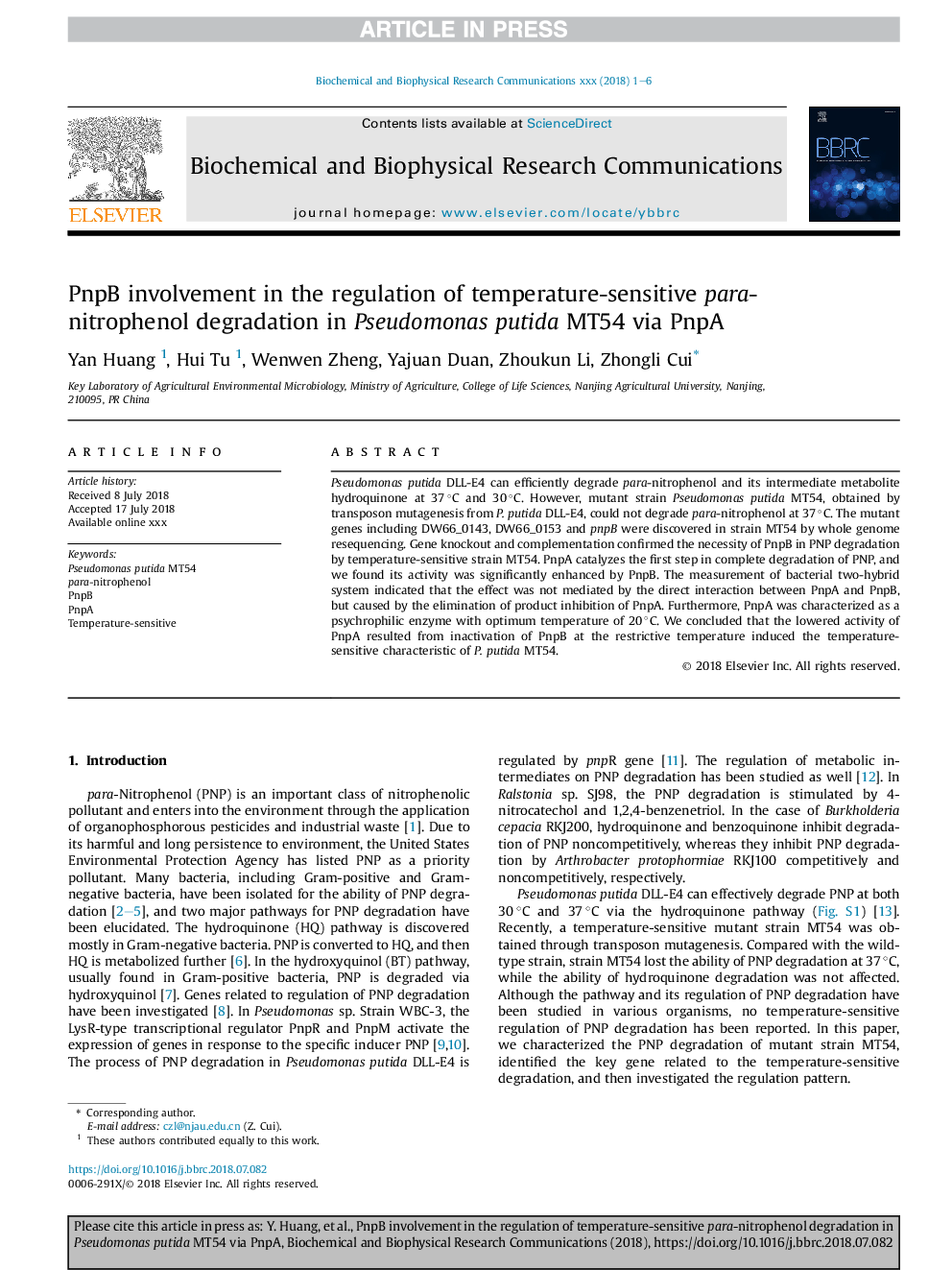| Article ID | Journal | Published Year | Pages | File Type |
|---|---|---|---|---|
| 8955995 | Biochemical and Biophysical Research Communications | 2018 | 6 Pages |
Abstract
Pseudomonas putida DLL-E4 can efficiently degrade para-nitrophenol and its intermediate metabolite hydroquinone at 37â¯Â°C and 30â¯Â°C. However, mutant strain Pseudomonas putida MT54, obtained by transposon mutagenesis from P. putida DLL-E4, could not degrade para-nitrophenol at 37â¯Â°C. The mutant genes including DW66_0143, DW66_0153 and pnpB were discovered in strain MT54 by whole genome resequencing. Gene knockout and complementation confirmed the necessity of PnpB in PNP degradation by temperature-sensitive strain MT54. PnpA catalyzes the first step in complete degradation of PNP, and we found its activity was significantly enhanced by PnpB. The measurement of bacterial two-hybrid system indicated that the effect was not mediated by the direct interaction between PnpA and PnpB, but caused by the elimination of product inhibition of PnpA. Furthermore, PnpA was characterized as a psychrophilic enzyme with optimum temperature of 20â¯Â°C. We concluded that the lowered activity of PnpA resulted from inactivation of PnpB at the restrictive temperature induced the temperature-sensitive characteristic of P. putida MT54.
Related Topics
Life Sciences
Biochemistry, Genetics and Molecular Biology
Biochemistry
Authors
Yan Huang, Hui Tu, Wenwen Zheng, Yajuan Duan, Zhoukun Li, Zhongli Cui,
